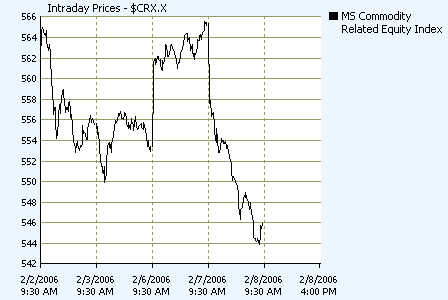Parched For Profits Try Beverage Stocks_1
Post on: 8 Июль, 2015 No Comment

The beverage industry probably isn’t the first place you’d think to look when you’re in the market for a good investment play. But that doesn’t mean it shouldn’t be considered. With notably high margins and universal appeal, beverage stocks might just quench your thirst for investment gains this year.
A Sip of the Industry
The beverage industry is as varied as you can imagine — from Coca-Cola (NYSE:KO ) to Diageo (NYSE:DEO ), the companies that make up the industry consist of bottlers, brewers, distillers and manufacturers of everything you can pour into a glass.
So, why bother with beverage stocks? Well, one big reason is the universal appeal of beverage companies. For the majority of people in the developed world, not a day goes by without consuming commercial drinks like sodas, bottled water, or juice. Recession resistance is another reason to look into beverage stocks as an investment option.
That’s not to say that all beverage stocks are boring, staid investments. Indeed, there are scores of companies in the beverage space that run the gamut between blue chips — like Coke and Pepsi (NYSE:PEP ) — and growth-focused nano caps — like Jones Soda (Nasdaq:JSDA ). (For more on stocks as defensive plays, see Guard Your Portfolio With Defensive Stocks .)
The Olde Soda Shoppe
The allure of drink stocks isn’t lost on the big-timers either. Super investor Warren Buffett. the cherry-coke-drinking Oracle of Omaha, owned 200 million shares of the Coca-Cola Company as of April 2009. Louis Navellier’s fund owned a sizable stake in PepsiCo at the same time. And institutional investors had considerable positions in Molson Coors (NYSE:TAP ) stock in 2009. That’s right, professional investors love beverage stocks. (To learn more, read Warren Buffett’s Best Buys .)
When it comes to beverage companies, there’s a solid dividing line between alcoholic and non-alcoholic beverage makers. That’s a split that goes beyond preference or moral conviction; the companies have significantly different fundamental attributes as well. (For another way to invest in alcoholic products, see Investing In Fine Wine .)
What Are You Thirsty For?
For starters, let’s take a look at non-alcoholic beverages. Non-alcoholic beverages include makers of bottled water, sodas, juices and teas. Some of the biggest players by market capitalization include Coca-Cola, PepsiCo and Dr. Pepper Snapple (NYSE:DPS ). (Read more about market power-players in Which Is Better: Dominance Or Innovation? )
What’s important to remember about non-alcoholic beverage companies is the fact that there’s a lot less diversification in this industry than you’ll see in the alcoholic beverage industry; while you generally see a broad spectrum of target customers represented by the product offerings of a distiller like Diageo, most non-alcoholic beverage companies (with the exception of the largest players) aim for a smaller subset of customers. That means that lower-margin beverage companies (like Cott Beverages (NYSE:COT ), which makes Sam’s Choice Sodas) could be more susceptible to fluctuations in the economy. (Find out how to determine the state of the economy in Economic Indicators To Know .)
Alcoholic beverages can be broken down further into two main categories — beer brewers and distillers/wineries.
Of all beverage companies, beer brewers are the group with the lowest margins — in 2008, net margins for brewers averaged just 1.86%. But while margins may be thin for breweries like Molson Coors and AmBev (NYSE:ABV ), investing potential isn’t. Brewers tend to have lower P/E ratios than other beverage companies, and they’re also an industry growing at a fast clip.
Part of that growth is thanks to the slew of mergers that took place between international brewers throughout the 2000s (and involved many major beer brands in the U.S. including Budweiser, Miller and Coors). These business combinations continue to hold the potential for cost savings and revenue growth that could prove profitable for investors. (For more, see The Wonderful World Of Mergers .)
Last up are the distillers/wineries, which include companies like Diageo and Constellation Brands (NYSE:STZ ). These companies produce liquor and wine, which generally enjoy the highest margins of all beverage stocks. As with brewers, mergers and acquisitions have been a big part of distillers’ and wineries’ growth strategy in recent years. In fact, most large alcoholic beverage companies own brands that span both groups (Diageo owns both liquor brands like Smirnoff and beer brands like Guinness).
Easy to Swallow
Diversification is one of the principal reasons for investors to consider adding beverage stocks to their portfolios. Not only do almost all large beverage companies own a number of different brands, many are also involved in businesses throughout the world.
In an ever-increasing global economy, the impact of overseas operations is certainly something to consider, particularly when it comes to how overseas operations are reported in the financial statements. Multinational corporations have to account for exchange rate risks along with many macroeconomic factors in their business dealings. Quite often, currency appreciation or depreciation can have a profound effect on earnings. Globally diversified companies can have significantly positive or negative effects on an investor’s portfolio — it’s all a matter of understanding the risks involved before your money gets involved. (To read more on global diversification, read Taking Global Macro Trends To The Bank .)
The Last Drop
Even if the beverage industry wasn’t on the top of your investing shortlist, there are scores of beverage stocks that can offer some real benefits to your portfolio. Investors thirsty for some diversification and potential upside in their portfolios should consider adding a different kind of liquidity to their stock stables. (For more about stocks that can keep you afloat in a recession, see Industries That Thrive On Recession .)














